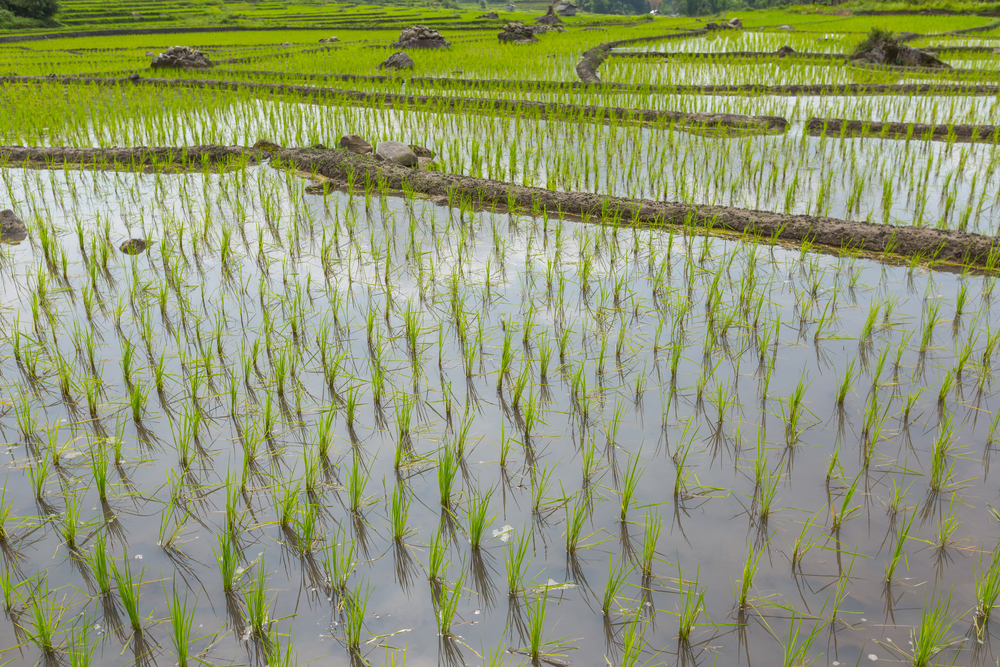Down on the Japanese Farm with the TPP

Please note that we are not authorised to provide any investment advice. The content on this page is for information purposes only.
The issue of liberalising Japan’s agricultural market presented a major, if not the major hurdle to the Abe administration’s agreement with the Trans-Pacific Partnership (TPP) deal struck in Atlanta on 5 October 2015. Japan has agreed to abolish tariffs on 81 percent of 2328 agricultural, forestry and fisheries imports — more than on any other free trade agreement concluded by Japan so far but lower than any other participating country.
The issue of liberalising Japan’s agricultural market presented a major, if not the major hurdle to the Abe administration’s agreement with the Trans-Pacific Partnership (TPP) deal struck in Atlanta on 5 October 2015. Japan has agreed to abolish tariffs on 81 percent of 2328 agricultural, forestry and fisheries imports — more than on any other free trade agreement concluded by Japan so far but lower than any other participating country.
The abolishment of tariffs will affect 30 percent of imports in the so-called five ‘sensitive’ categories (rice, wheat and barley, beef and pork, dairy products, and sugar). However, for some of these products the measures implemented fall short of full liberalisation.
The Ministry of Agriculture, Forestry, and Fisheries (MAFF) has completed an official analysis of the TPP’s impact on about 60 agricultural, forestry and fisheries products. It concluded that there would be no dramatic rises in imports for the time being and only limited or no impact in many cases. Though it did find that ‘prices of domestic products may fall in the long run’ for some sensitive agricultural products.
Yet opinions differ on what impact the TPP will have on Japan’s farming sector. Farming representatives from the ruling, Liberal Democratic Party (LDP) have rated the MAFF’s assessment as too optimistic.
The TPP outcome raises questions about the reassurances given by the TPP Minister, Akira Amari, that Japan’s negotiating team fully protected ‘core areas’ (koa bubun) of the five ‘sensitive’ items. It revealed a significant gap in how the government and the grassroots interpreted the Diet resolutions demanding that these items be exempted from tariff liberalisation.
The Japan Agricultural Cooperative (JA) organisation has gone on the offensive, saying that ‘farmers will face tougher competition with major exporters such as the United States; and that great concern and anger are spreading at the grassroots’.
The real effects of the TPP on Japan’s agricultural sector will not be clear in the short term because of some measures implementation over a period. At one extreme, for products such as beef, cheese and whey, it will take 16–21 years for the tariffs to be reduced to the lowest level or to be completely abolished. At the other, tariffs on 14 agricultural products — all vegetables — will fall to zero at the time of TPP implementation.
Rice remains the biggest ‘sanctuary’ of all. The TPP will provide little or no benefits for rice consumers. Uncompetitive small-scale rice farmers will remain in business because of the stockpiling measures taken to stabilise the price of rice. As the Abe government well knows, there are 1.15 million rice-farming households out of approximately 2.5 million farm households, so rice farmers represent a huge source of votes.
How farmers might react to the TPP and the consequent political fall-out is difficult to assess. Much will depend on what the government does to cushion the effects of implementing the agreement — that is, what measures are in place for each product where local producers are uncompetitive. The Abe government is currently drafting a list of measures to be finalised later in November.
In a survey of farmers conducted by JA in mid-October, 48 percent answered that they think business conditions will worsen for them. Of these farmers, only 8 percent answered that they supported the cabinet, while 75 percent answered that they did not. One farmer was quoted as saying, ‘I am becoming more and more distrustful of the government every day’. In addition, some complained that ‘the MAFF’s analysis of the impact of the TPP is superficial’. However, some farmers appear to be ready to take up the challenge: one mandarin producer in Shizuoka said, ‘I think that tariff abolition will have an impact. We will have to make high-quality mandarins’.
The Abe government wants to implement the TPP agreement at minimal political cost while also making farming a viable industry for the future. To help farmers adjust to the likely impact, the TPP provides an opportunity for measures to be implemented to improve farm efficiency and productivity.
One crucial factor will be whether the measures adopted amount merely to government handouts to farmers, or whether they precipitate real changes in agricultural structure. There are sufficient time horizons provided for in the TPP implementation to allow such measures to take effect. However, the Abe government’s record on agricultural reforms to date is far from reassuring.
Implementing the TPP puts a premium on the success of the farmland consolidation program to promote scale expansion but so far, this program has only had very limited success despite a ¥50 billion (about $US450 million) allocation.
There is some potential for increased imports because of the TPP: US tariffs on Japanese rice, beef, soy sauce, miso, fruit and more will be abolished. Still, while Japanese agricultural products are praised for their quality, high prices are a hindrance.
The biggest bottleneck of all is rice policy, which generates all the wrong incentives. It rewards farmers looking for government handouts rather than entrepreneurial producers seeking to sell high-quality rice with added value. Given the continuing protection of this sector under the TPP agreement, this is unlikely to change.
What does the TPP mean for Japan’s agricultural sector? is republished with permission from East Asia Forum




